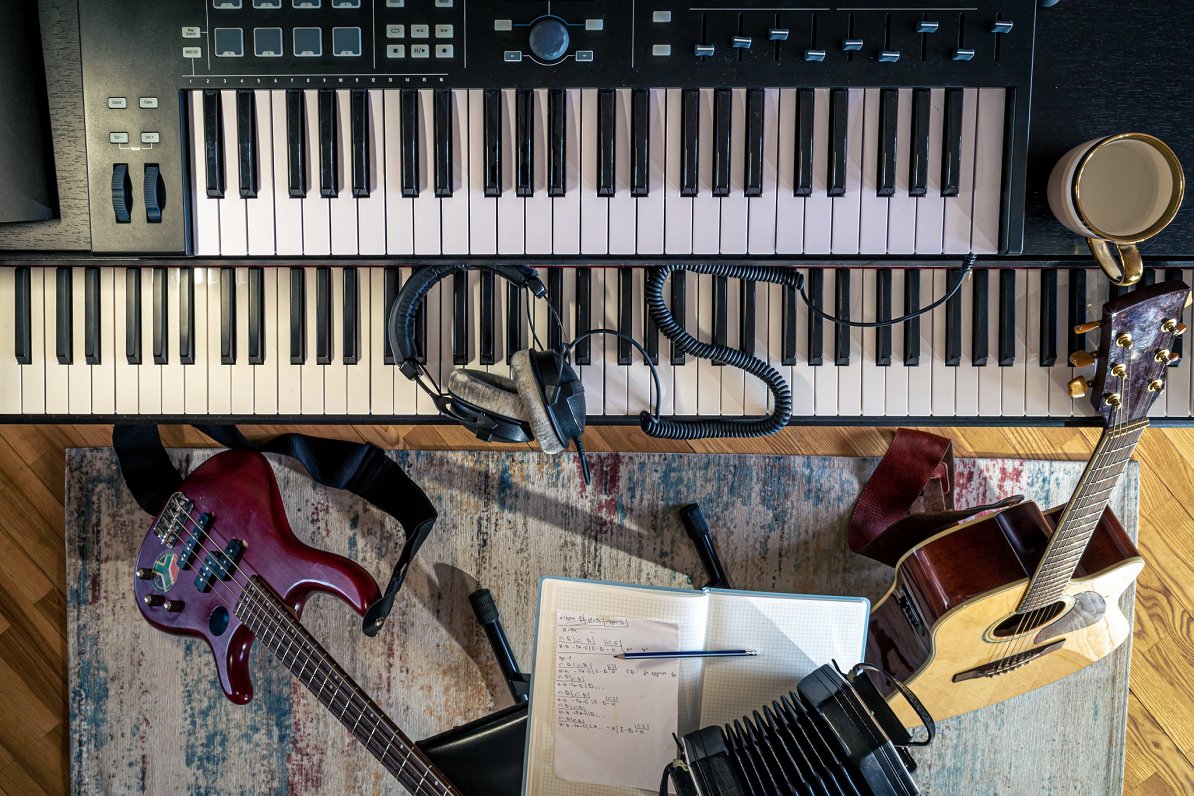The study provides data on music tastes, genre selection, and music listening habits of Latvian society. The genre selection is still dominated by the pop genre, which is selected by 36% of those surveyed. Rock music follows with 17%, electronic music with 9%, Schlager with 8%. Hip-hop, classical music, and indie/alternative each got 5% of the audience vote.
An absolute majority – 93% of the surveyed residents of Latvia aged 18 to 60 are listening to music records every day, while only about a quarter or 24% of Latvian residents have spent money buying music records.
Around a tenth of the population – 8% – spent up to €10 per year on subscriptions to streaming services or purchase of music records. The study shows that compared to last year, the proportion of these people has decreased significantly. 6% of the population spend between €11 and €30 on purchasing music a year and 9% above €30.
The most commonly used source of music purchase is streaming services (e.g. Spotify, Deezer, etc.), which are used by 16% of Latvian residents, while 2% of music is purchased in a store or on the Internet in CD or DVD format, 1% buys them for a fee when downloading the Internet, and 1% purchase music records in a store or from the Internet in old-school vinyl format. On the other hand, most people do not buy music records – 39% of music is listening to free Internet sites (Youtube, Internet radio, etc.), as well as 33% on the radio.
44% listen to music when traveling in a vehicle; 30% prefer to play music at home, while 9% listen to it in their workplace and 7% while moving on their feet.
Most Latvian residents aged 18 to 60 agree with the claim that music in customer service rooms improves mood, as well as the fact that music at customer service sites should be peaceful and neutral (on average 73% of those surveyed).
“We are pleased by the survey results that 74% of Latvian residents agree that the use of intellectual property should be rewarded,” said Liena Edvardsa, executive director of LaIPA. 71% have indicated that the main beneficiaries of intellectual property protection are authors and performers, while nearly half or 47% agree that creating intellectual property can contribute significantly to the long-term development and well-being of the Latvian economy. "This is a very important conclusion and shows the growing awareness of intellectual property in society," said Edvardsa.
The survey involved over 1,000 Latvian residents aged 18 to 60. LaIPA represents more than 2 thousand Latvian and 3 million foreign performers and phonogram producers, on the basis of mutual representation contracts concluded with rightholders and foreign law organizations, including the property rights of independent phonogram producers and record companies such as Sony, Warner, Universal and others.




























